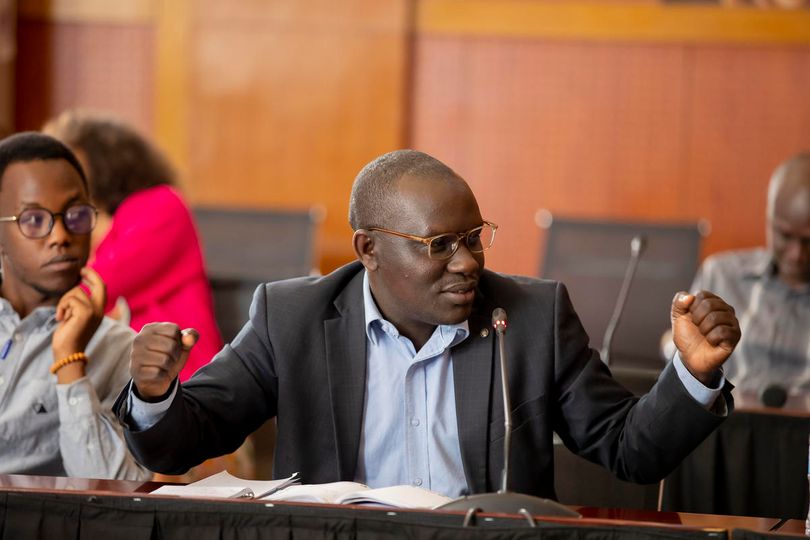Aficionados debate problems affecting the publishing sector in Rwanda
on Jul 18, 2022

In a literary workshop, more than 50 writers, editors, academics, publishers, and booksellers from across the world came together to talk about issues affecting the book industry, particularly those linked to reading, writing, and publishing.
On July 16, the seminar was held at the Ministry of Foreign Affairs and International Cooperation (MINAFFET).
The necessity to address this issue and the need for Rwandans to narrate their own tales rather than having them recounted by outsiders are what motivated Jean-Pierre Karegeye, a scholar who organised the workshop, to bring together several important figures in the book industry.
He believed that reading and writing should be ingrained in children from an early age and given adequate time as a topic to be taught in school.
"We want to read and write about our rich past in order to become its owners. It also involves picking up new tongues. We must improve the way we introduce children to books in various languages "said the academic from the US.
Considering the necessity for Rwandans to create their own narratives, he remarked, "In many areas, Rwanda is doing fantastically. That is a truth, and while facts undeniably exist, they are silent. Unspoken or unwritten words are invisible. We must participate in interpreting our past and constructing stories based on our facts."
Added him: "While humanities and social sciences are crucial, science, technology, and engineering are not enough to guide and explain human behaviour. For instance, the social sciences can be used to analyse the social and ethical effects of technical and scientific research. They can aid in the development of critical thinking, provide Rwandans with tools to combat hate and genocidal denial, and support long-term peace and development ".
The president of the Rwanda Writers Federation (RWF), Richard Hategekimana, acknowledged that there are issues affecting Rwandan writers today that need to be addressed as the nation also strives to have a knowledge-based economy. These issues include inadequate training, the absence of a book policy, and a lack of book buyers and libraries.
He invited authors to join the federation so they could take advantage of the advocacy it makes and work together with others to raise one another and the nation as a whole.
According to him, the federation also works with regional and worldwide authors' groups as well as writers in the diaspora to support writing initiatives, train writers and assist them in publishing their books.
Editor Flore-Agnès Zoa claimed her organization's job included promoting authors, editors, and the reading culture. Flores Zoa Publishing House aims to build a branch in Rwanda.
She is conscious of her responsibility as a publisher to assist in resolving issues impacting local authors, particularly up-and-coming writers, by assisting them in refining their manuscripts, obtaining publication, and earning royalties from their works.
Additionally, she plans to collaborate with neighborhood groups and has already volunteered to send 1,000 copies of Murambi to students in high school and college so they may start reading in their clubs.
Since the book discusses genocide, the author thinks that young readers will be able to use it to learn about the history and develop their literary works. She believes that many people and organisations need to take this kind of action.
Author Céline Uwineza, who wrote Untamed: Beyond Freedom, attended the session.
Because the English version of her book was the most popular and because her message was more relevant to Rwandans, she recognises the issue of not writing much in Kinyarwanda.
She asserted that despite writers' desire for their stories to be read widely, the majority of Rwandan publishers only ever publish for the Rwandan market.
She stated that fostering a reading culture should begin in households, with parents educating their kids, and then spread to schools, where students should be provided enough reading materials and reading time.

.jpg)
.jpg)
.jpg)
.jpg)
.jpg)
.jpg)

.jpg)

.jpg)
.jpg)

.jpg)
.jpg)
.jpg)










Sorry! No comment found for this post.